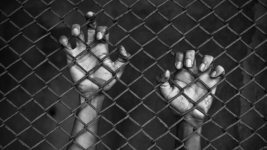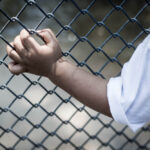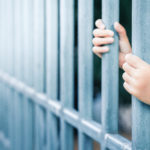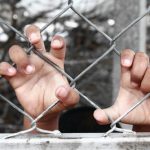Australia Has a Nasty Habit of Incarcerating Children It Doesn’t Want to Kick

The Queensland Labor government, along with the opposition Liberal National Party, One Nation MPs and those from Katter’s Australian Party, all voted against preventing children aged 10 to 13 from being imprisoned, as well as releasing those already inside.
Voted down on 16 August, the Criminal Law (Raising the Age of Responsibility) Amendment Bill 2021 was introduced into parliament by Greens MP Michael Berkman and besides fellow party member Amy MacMahon, the only other MP to vote to keep kids out of gaol was independent Sandy Bolton.
As shocking as it may sound, it’s hardly surprising the rest of state parliament voted to continue to lock up minors in what are euphemistically referred to as youth justice centres, as the nation as a whole has been incarcerating primary school aged children since its inception.
“In a last-minute show of cowardice, 51 of the 52 Labor MPs didn’t even have the guts to explain their position,” Berkman said in a statement after the vote. “The government’s refusal to raise the age to at least 14 will mean even higher First Nations incarceration rates.”
The Queensland Greens justice spokesperson is pointing to a key aspect of settler colonial Australia’s refusal to raise the age of criminal responsibility, which is his fellow parliamentarians are voting to maintain a practice which disproportionately affects Indigenous children.
Dragging their feet
In its January 2021 five year review of this nation, the UN Human Rights Council recommended that Australia raise the age of criminal responsibility to 14 years old, in accordance with the advice of the UN Committee on the Rights of the Child.
But the Morrison government refused the proposal in July that year.
Since November 2018, the Council of Attorneys General (CAG) has been appearing to consider whether the age should be raised, as it then set up a working group to investigate the issue.
However, following a mid-2020 COG meeting, NSW attorney general Mark Speakman announced that the nation’s chief lawmakers couldn’t come to a decision on what sort of system would replace child incarceration, so the proposition was being put on the backburner.
Then, last November, following another meeting, the attorneys quietly announced that they’d come to a decision to raise the age a child can first stand before a judge and be sentenced to prison to 12: a watered down version of what the public has been calling for.
And nothing has been done over the succeeding period, as children as young as 10 continue to be sent to gaol.
Stark figures
Whilst the global median age for criminal responsibility is 12, Australia lags behind much of the human rights focused nations that it might like to compare itself to in having the minimum age set at 14 or above, such as Denmark, Sweden and Finland.
But those nations weren’t founded as penal colonies and on the dispossession of First Peoples.
According to the Australian Institute of Health and Welfare, on an average day in 2020-21, 787 youths were held in detention centres nationwide, with 383, or 48 percent, being First Nations, yet Indigenous young people only account for around 6 percent of the overall youth population.
Right now, about 51 percent of youths in the NSW system are First Nations. In September 2020, 63 percent of juveniles in WA youth detention centres were Indigenous. While in the NT, the number of Aboriginal kids making up the youth detention rate there fluctuates between 90 and 100 percent.
The AIHW figures further reveal that over the year 2020-21, three hundred and ninety 10- to 13-year-olds were locked up in the nation’s youth detention centres, and of these 270, or 69 percent, were Aboriginal and/or Torres Strait Islander children.
“Racism writ large”
The majority of youths sentenced to gaol in Australia come from troubled backgrounds and lower socioeconomic circumstances. However, rather than receiving any rehabilitative care, they’re often subjected to abuse, both physical and sexual, as well as torture.
The mid-2016 revelations about the mistreatment children were being subjected to inside Darwin’s Don Dale Youth Detention Centre sparked a Royal Commission into the facility, which called for it to be closed down. But Don Dale continues, and self-harm incidents are on the rise.
Darwin barrister John B Lawrence SC told Sydney Criminal Lawyers last month that his explanation for why the centre continues to run is “no one cares about this shameful feature. No one cares about the children and their families, who are all Indigenous”.
Less well known nationwide but notorious nonetheless is WA’s only youth prison Banksia Hill. State Children’s Court president Hylton Quail suggested in March that the treatment of children in that facility is akin to the barbaric behaviour animals are often subjected to.
While reports emerged last week about Tasmania’s Ashley Youth Detention Centre, which saw a former detainee telling an inquiry that three adult prison officers had been forcing him to perform sexual acts prior to their handing over his medication to treat his ADHD.
Irresponsible to say the least
Despite the general resistance to raising the age coming from Australian governments of all levels, the ACT committed to raising it to 14 in October 2021, whilst Tasmania actually became the first jurisdiction to lift the age to 14 last June.
Indeed, as Berkman pointed out in his explanatory notes to his bill, that neuroscientific evidence shows that children under 14 haven’t developed to the stage where they can properly reflect on the consequences of their impulsive behaviour, so technically, they can’t be held criminally responsible.
But this fact is well known and yet, politicians from both major parties, and those crossbenchers with far-right leanings, all continue to maintain the age at 10 years old, knowing full well that disadvantaged and dispossessed First Nations children are those essentially targeted by this move.







